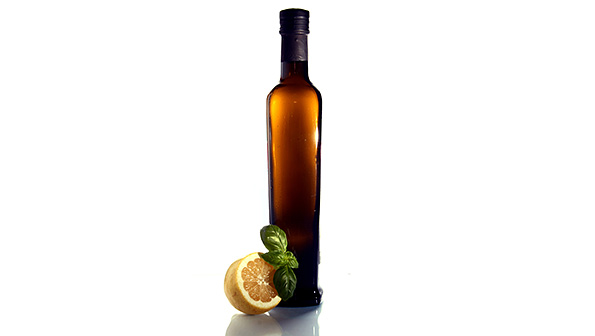Why do dried blueberries need added flavoring? The Dorito Effect, a new book by journalist Mark Schatzker, examines why so many packaged foods contain added flavoring—and what you can do about it.
Why do dried blueberries need added flavoring? The Dorito Effect, a new book by journalist Mark Schatzker, examines why so many packaged foods contain added flavoring—and what you can do about it.

On a recent layover in Tulsa, Okla., I found myself hankering for a filling breakfast. My options were unfortunately limited: a sugar-laden conventional yogurt, an overpriced TGI Friday’s sit-down breakfast omelet, and something from Starbucks, the ubiquitous coffee chain found not just on every corner, but in multiple airport terminals. Pressed for time, I settled on Starbucks’ Hearty Blueberry Whole-Grain Oatmeal. Commendably, the coffee brand sells this product unsweetened, with small packets of add-ins like dried fruit, nuts, seeds, and agave or honey.
I happily ate this morning concoction while reading the nutrition facts on the pouch of dried blueberries. Interesting, I thought. The dried blueberries contained “natural flavoring”. Why would dried blueberries, which already contain added sugar, need additional flavoring?
My question was recently illuminated by author Mark Schatzker’s recent book The Dorito Effect (Simon & Schuster, 2015), which argues that America’s obesity epidemic stems not from any one nutrient like fat, sugar, carbs or salt, but from the disconnect between how food tastes and what nutrition it is delivering. “We keep arguing about carbs and fat and sugar,” Schatzker told CBS This Morning. "All these things existed and people ate them 50 years ago when Americans were a whole lot trimmer. The thing that's really changed is the flavor."
In a nutshell, my dried blueberries needed extra flavoring because they were grown in a way that optimized their appearance, not their nutrition and flavor.
Dan Barber, author of The Third Plate (Penguin, 2014) and renowned chef of Blue Hill, a restaurant in Manhattan, reinforces this idea. Flavor and nutrition are born from the soil, he says. Cultivate the soil and your corn will taste cornier, and your blueberries more … uh, blueberry-er. This is why a tomato from your garden tastes noticeably better than a watery, industrial ag-produced tomato from your conventional grocery store.
So what does this mean for you? Seek ingredients and products that are made on farms that support soil development—look for USDA Organic and even Demeter Certified products, which indicate biodynamic farming practices (often touted as regenerative agriculture). And while natural flavoring is certainly better than artificial flavoring, ask your natural products retailer to show you products that provide flavor with spices, sea salt, and high-quality ingredients.
Patronizing farms and companies that focus on ingredient quality will lead to a more nutritious and tasty food landscape.
